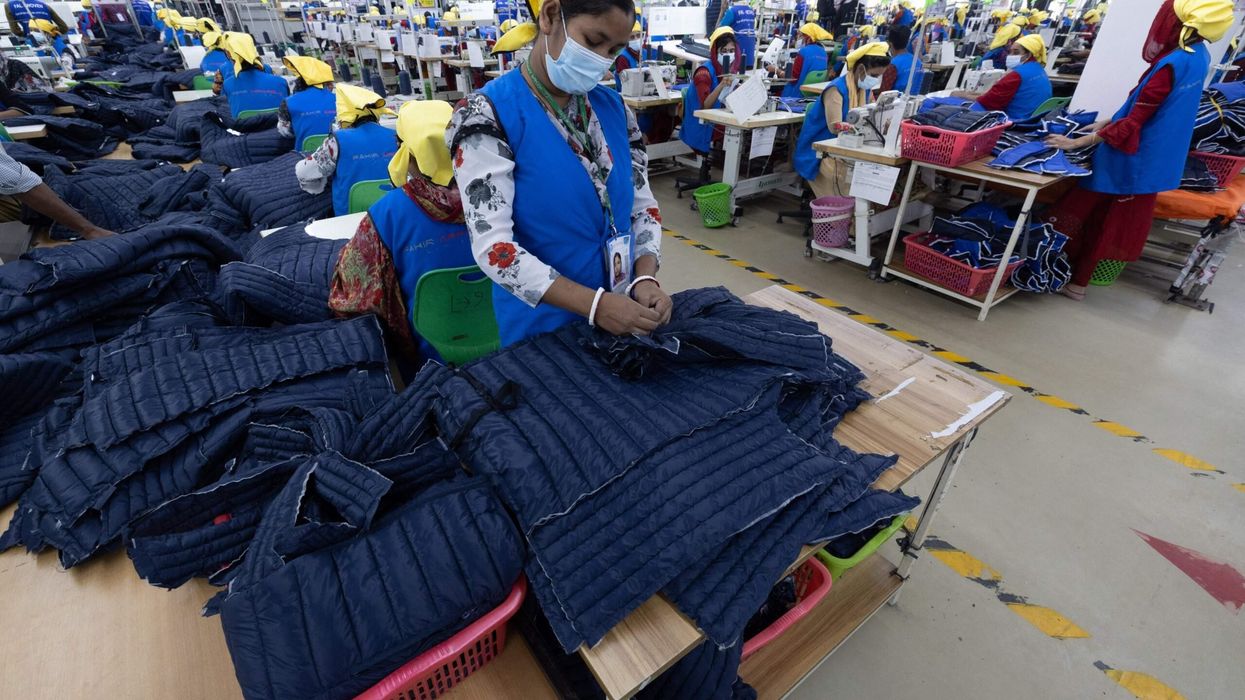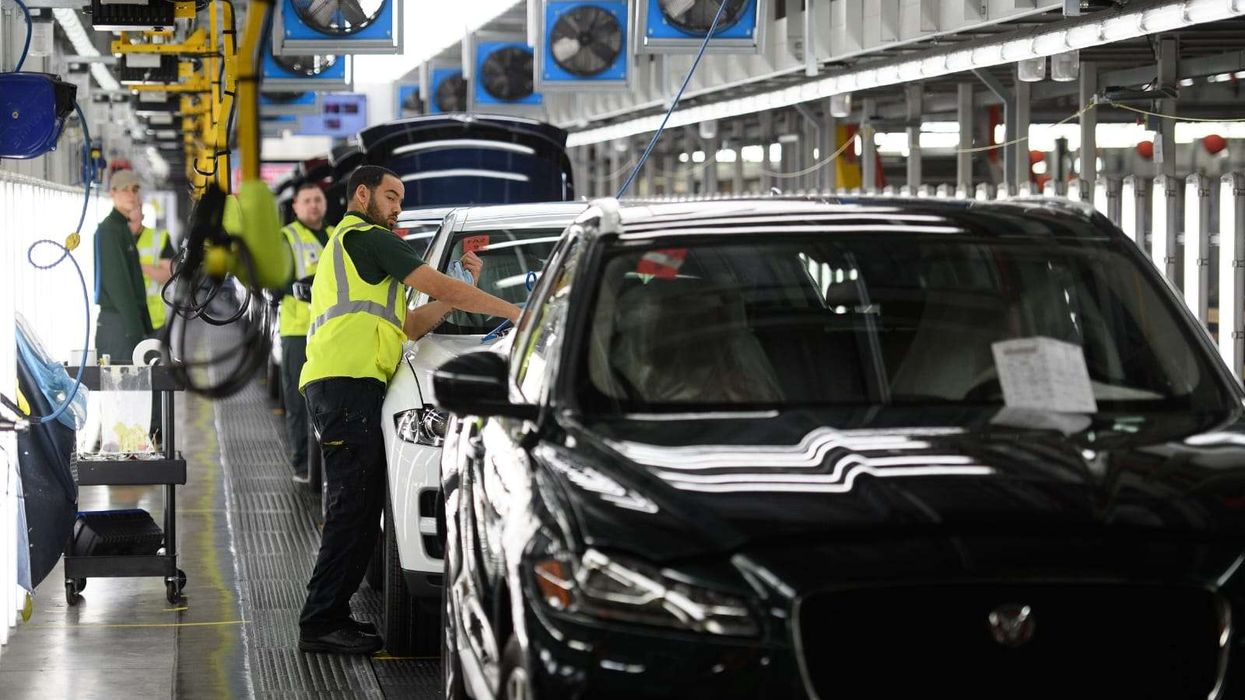IN THE industrial town of Rupganj outside Dhaka, clothing manufacturer Fakir Fashions is using artificial intelligence to automatically pause production and avoid waste when something goes wrong in its knitting operations.
AI technology has also allowed the fashion supplier, which employs about 10,000 workers, to dismiss dozens of human quality inspectors, said managing director Fakir Kamruzzaman Nahid.
Suppliers and brands across the $1.7 trillion (£1.3t) global fashion industry are beginning to use AI technology, such as in cameras and sensors that detect defects, to boost production and to reduce their environmental impact, including by monitoring emissions and water use.
The sector is responsible for between two per cent to eight per cent of global greenhouse gas emissions that cause climate change. It is also one of the world’s major polluters of water sources and produces vast amounts of waste that wind up in landfills.
While AI could help improve the apparel business’ environmental track record, it also poses a threat to some of the 75 million jobs in the labour-intensive industry worldwide, already under pressure from other forms of automation.
“We know what is coming on fashion’s AI front - and if workers do not get to have a say about how it impacts them, they are at a disadvantage as a class,” said Christina Hajagos-Clausen, textile and garment industry director at IndustriALL Global Union, a Geneva-based global federation of unions.
Most global fashion brands are looking at how generative AI can improve their businesses, with 73 per cent of executives saying in a survey by consulting firm McKinsey that they consider AI a priority in the coming years.
While there is no comprehensive research into AI’s potential to reduce the industry’s emissions, a few studies offer clues at how it might help. For example, using digital samples of clothes before going into production could cut carbon dioxide emissions by 30 per cent in the design and development of clothes.
In Bangladesh, the world’s second-biggest garment exporter, about 60 per cent of apparel workers, or 2.7 million people, risk losing their jobs due to automation including AI, according to the International Labour Organization.
But some experts believe the textile industry will still need human labour, especially for complex, high-skilled work.
“The influence of AI on jobs is a million-dollar question that we are all pondering, and my wager is that AI in fashion will complement rather than replace humans,” said Shahriar Akter, professor of analytics and innovation at Australia’s University of Wollongong. While Fakir Fashions reduced its quality control workforce after bringing in AI, Nahid said the money it saved on those wages and on the hundreds of kgs of waste the tools prevented will enable it to expand operations – and add new jobs.
“To stay competitive, we need to cut costs and adopt new innovations. But better tools also will bring us business and make up for the job losses,” he told the Thomson Reuters Foundation.
Sweden’s H&M Group, the world’s second-largest clothing retailer, has said it is investing in AI tools to recycle post-consumer waste and reduce deforestation by fashion manufacturers.
The pace of AI adoption, and automation in general, varies across the textile industry.
In Bangladesh, companies still largely rely on manual labour to sew and stitch clothes, but fully automated machines that knit sweaters have already drastically cut jobs.
Yousuf Jamil, who works at a sweater factory in the town of Gazipur, said he oversees six machines and accomplishes what a dozen people could do manually. But he receives the same pay as a worker weaving a T-shirt.
“The fashion industry needs a comprehensive plan for reskilling workers, either for keeping their jobs within the industry or transitioning to other jobs in the coming years,” said Amirul Amin, president of the National Garment Workers Federation (NGWF) of Bangladesh.
The US-based startup Shimmy Technologies works with brands and nonprofit organisations, including H&M and the development organisation Asia Foundation, to provide workers with gamebased training apps that teach them how to operate new machines at factories in Bangladesh and Central America.
“In this world of AI, there will be a need for constant upskilling, and you cannot meet that need at scale by providing classroom-based training alone,” said Sarah Krasley, who founded Shimmy Technologies in 2016.
While low-skilled jobs are most at risk, the growing use of AI in the textile industry will create demand for better paid engineers and technicians, said AI engineer Zahid Hasan, who works with local fashion suppliers in Bangladesh.
As apparel workers in Bangladesh and else where brace for the impact of AI on their livelihoods, Akter of the University of Wollongong said now is the critical time to prepare for the inevitable disruption ahead.
“We are still on the cusp of the AI revolution in the fashion industry, and we need strategies to harness the power of AI to benefit workers and the environment,” said Akter. (Thomson Reuters Foundation)












